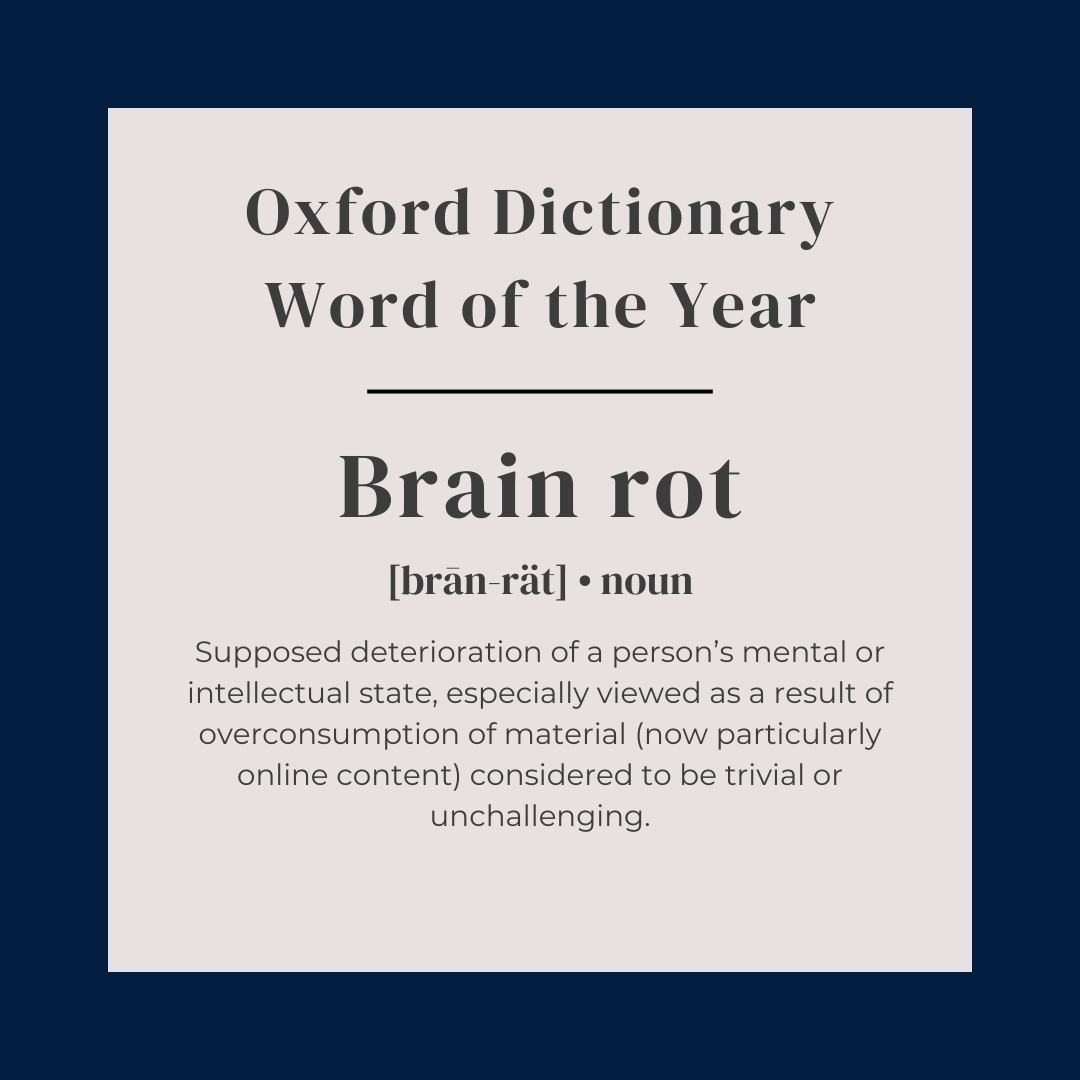According to Oxford University Press, the 2024 Word of the Year is brain rot, which is a term used to capture the concerning impact of consuming excessive amounts of low-quality online content. Ironically, brain rot, a dictionary term of the year, is also being traced to the decreasing literacy levels in younger generations.
“‘Brain rot’ is defined as ‘the supposed deterioration of a person’s mental or intellectual state,” Oxford University Press wrote in an article about the word of the year. “Especially viewed as a result of overconsumption of material (not particularly online content) considered to be trivial or unchallenging. Also: something characterized as likely to lead to such deterioration.”
The term ‘brain rot’ has been seen as a joke by many young adults and the use of the word increased by 250% per million words between 2023 and 2024. Unfortunately, this fixation is actually impacting the public’s brain in a negative way, hence the name brain rot.
“I think it’s a pretty bad choice for Word of the Year,” English teacher Tanner McClelland said. “But, I can understand why they did it. I didn’t really think that brain rot, itself, is a real word.”
The use of social media can be positive in some ways but the amount of time spent absently scrolling not only affects mental health but also impacts reading levels. Multiple studies have shown that there has been a major decline in literacy levels and the amount of people who enjoy reading.
“Only 34.6% of eight- to 18-year-olds surveyed by the National Literacy Trust (NLT) said that they enjoy reading in their spare time,” writer Ella Creamer said on “The Guardian.” “This is the lowest level recorded by the charity since it began surveying children about their reading habits 19 years ago, representing an 8.8 percentage point drop since last year.”
Other popular findings have also shown that college students are not prepared to read multiple books per semester. In a now viral article release by “The Atlantic,” Professor Nickolus Dames said that twenty years ago, his students had no problem reading, but now they struggle to comprehend small details along with the overall plot. American public school districts are currently figuring out how to reteach reading skills to younger and older students.
“I think distracting or pulling phones away from people will help,” Mr. McClelland said. “I mean, I get a lot of my news and media from my phone, but you also have to balance it with things that are a longer process for achieving understanding. So, you can’t just get everything quickly. You can do some things quickly, and some things over the course of hundreds of pages, like a book.”




